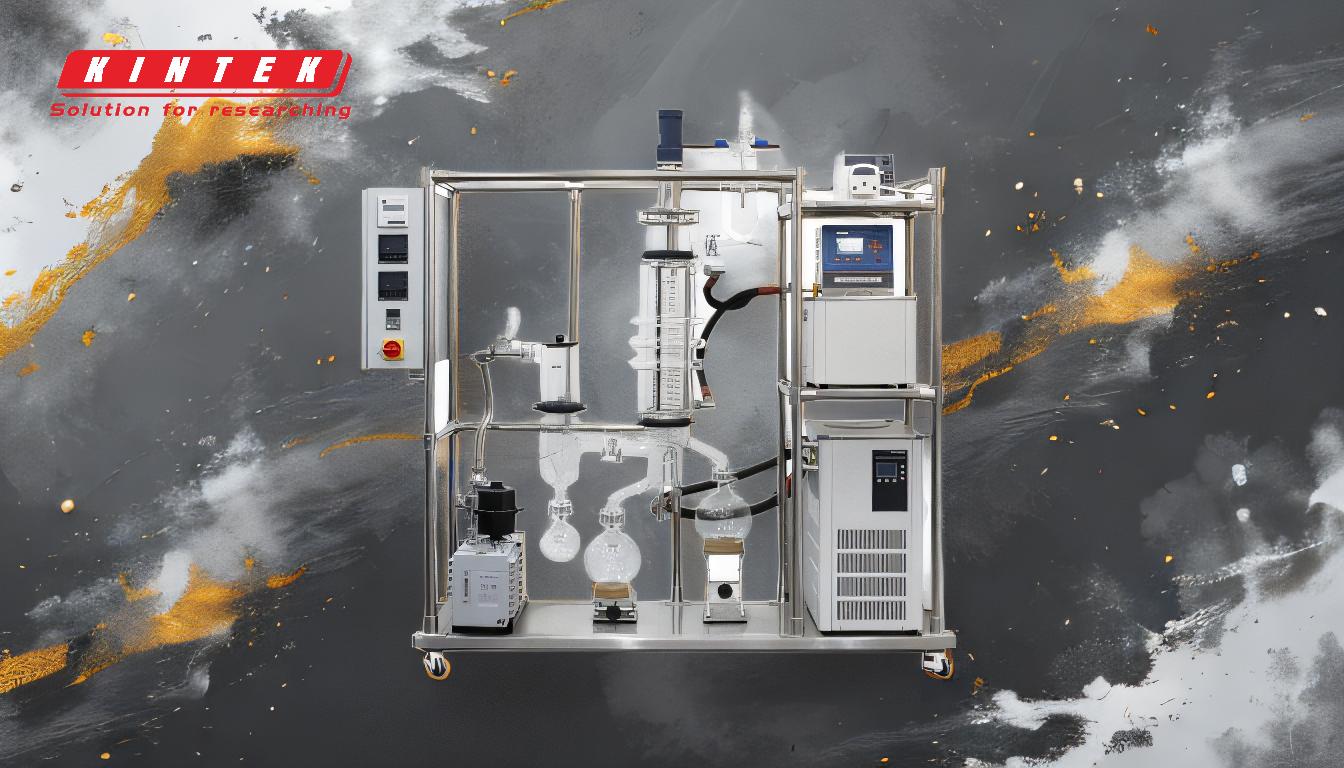Distillation under reduced pressure offers several advantages, particularly for heat-sensitive substances and processes requiring precise separation. By lowering the pressure, the boiling point of substances is reduced, allowing distillation to occur at milder temperatures. This minimizes the risk of thermal degradation and preserves the integrity of sensitive compounds. Additionally, reduced-pressure distillation enhances separation efficiency by eliminating back-pressure and focusing on molecular weight differences. It also reduces energy consumption and speeds up the process, making it more efficient and cost-effective. These benefits make it a preferred method in industries like pharmaceuticals, food processing, and chemical manufacturing.
Key Points Explained:

-
Lower Operating Temperatures
- Distillation under reduced pressure lowers the boiling point of substances, enabling the process to occur at milder temperatures.
- This is especially beneficial for heat-sensitive compounds that may degrade or decompose at higher temperatures.
- Example: In pharmaceutical production, active ingredients and solvents can be separated without compromising their stability.
-
Enhanced Separation Efficiency
- By reducing pressure, the boiling point becomes dependent on the molecular weight of the substance rather than its vapor pressure.
- This eliminates back-pressure, which can interfere with the separation process, leading to purer distillates.
- Example: Molecular distillation is widely used in the purification of essential oils and fatty acids.
-
Reduced Risk of Thermal Breakdown
- Lower temperatures minimize the risk of thermal decomposition, preserving the chemical structure and functionality of sensitive materials.
- Example: In food processing, heat-sensitive vitamins and flavors can be extracted without losing their nutritional or aromatic properties.
-
Faster Processing Times
- Reduced-pressure distillation, such as rotary evaporation, often completes in less than 5 minutes, compared to traditional methods.
- This speed is advantageous in high-throughput environments like laboratories and industrial settings.
-
Energy Efficiency
- Operating at lower temperatures reduces energy consumption, as less heat is required to achieve distillation.
- Example: Rotary evaporation uses less energy than boiling with a heat source, making it a cost-effective solution.
-
Effective Solvent Removal
- Low-pressure conditions are highly effective in removing residual solvents, ensuring the purity of the final product.
- Example: In chemical synthesis, residual solvents can be efficiently removed without exposing the product to high heat.
-
Versatility Across Industries
- The method is applicable in various industries, including pharmaceuticals, food processing, and chemical manufacturing, due to its adaptability and efficiency.
- Example: It is used to produce high-purity cannabinoids in the cannabis industry and to refine edible oils in the food sector.
In summary, distillation under reduced pressure is a versatile and efficient technique that addresses the challenges of heat sensitivity, energy consumption, and separation precision. Its advantages make it indispensable in modern industrial and laboratory applications.
Summary Table:
| Advantage | Description | Example |
|---|---|---|
| Lower Operating Temperatures | Boiling points are reduced, enabling distillation at milder temperatures. | Pharmaceutical production: Separates active ingredients without degradation. |
| Enhanced Separation Efficiency | Eliminates back-pressure, focusing on molecular weight differences for purity. | Purification of essential oils and fatty acids. |
| Reduced Risk of Thermal Breakdown | Minimizes thermal decomposition, preserving sensitive materials. | Extracting heat-sensitive vitamins in food processing. |
| Faster Processing Times | Completes in less than 5 minutes, ideal for high-throughput environments. | Rotary evaporation in laboratories. |
| Energy Efficiency | Lower temperatures reduce energy consumption. | Rotary evaporation uses less energy than traditional boiling. |
| Effective Solvent Removal | Efficiently removes residual solvents, ensuring product purity. | Chemical synthesis: Removes solvents without high heat exposure. |
| Versatility Across Industries | Widely used in pharmaceuticals, food processing, and chemical manufacturing. | Refining edible oils and producing high-purity cannabinoids. |
Learn how reduced-pressure distillation can optimize your processes—contact our experts today!









